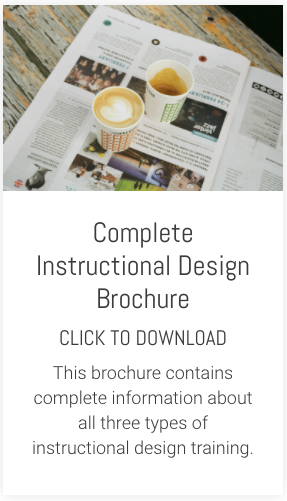I've recently been watching the much-praised series House of Cards produced by and starring Kevin Spacey. I was a big fan of the original BBC series and I think he's done a great job of adapting the story for the American political landscape.
Spacey has also been in the news recently with his keynote address to the Edinburgh TV Festival. His main focus was encouraging new talent and innovation in the media world, but in talking about this, he made some observations that are as pertinent to the world of learning as they are to the world of the media luvvies.
A couple of months ago I wrote an article about mobile learning for the TrainingZone website. My main point: despite all the hype from the vested interests (desperate to flog you their products and make their big investment gamble pay off), very few people are actually doing anything with mobile learning.
Related to this, I also noted that it's become rather difficult these days to even define mobile learning given the blurring that's going on between different types of device.
I've also written previously about how, in general, learning and development folk tend to obsess about delivery mediums and devices and not enough about instructional design the effectiveness of learning. How we get distracted by the technology. How we tend to see learning in silos.
So my ears pricked up and my attention was immediately grabbed, when I saw this clip from Spacey's speech featured on TV (the bold text is mine, the block capitals are Spacey's):
"One way that our industry might fail to adapt to the continually shifting sands is to keep a dogmatic differentiation in their minds between various media - separating FILM and TV and MINI-SERIES and WEBISODES and however else you might want to label narrative formats.
It's like when I'm working in front of a camera…that camera doesn't know if it's a film camera or a TV camera or a streaming camera. It's just a camera. I predict that in the next decade or two, any differentiation between these formats - these platforms - will fall away".
In the early 1990s, I remember reading Nicholas Negroponte's The Media Lab. At the time, it was revolutionary stuff. Most of what he was predicting back then felt like science fiction - most of it has now come true, of course. But his big idea was convergence. This was the idea that separate technologies like TV, radio and computers would all eventually blur together into a massive multi-media whole.
Negreponte saw it all happening within a 10 year timespan. That was a bit optimistic. It's still a work in progress and as Spacey suggests, will probably take another decade of two. But coming it is.
So what would convergence mean for e-learning in particular and learning and development in general. Well, the death of silo thinking, I suspect. As the distinctions between the technology and devices we use to create and access learning become more and more blurred, I think the labels we currently use will become less and less significant or meaningful.
This will be a painful shift. Plenty of people who have made plenty of money from the old ways of thinking will almost certainly resist convergence for as long as they can. People who use the old-style technologies will be equally reluctant to take on board a whole new way of doing things.
And it won't be straightforward, either. As far as I can see, convergence in the media world will be a lot easier to achieve than in learning and development. Thinking about the learner experience in a world of convergence will be complex.
But in the end, I suspect, it will be the learners themselves who will demand this change. As convergence becomes more and more normal in many other aspects of their lives, they simply won't put up with learning that is still packaged into silos.
Towards the end of his speech, Spacey makes the following observation (the bold text is mine, the block capitals are Spacey's):
"Is 13 hours watched as one cinematic whole really different than a FILM? Do we define film by being something two hours or less? Surely it goes deeper than that. If you are watching a film on your television, is it no longer a film because you're not watching it in the theatre? If you watch a TV show on your iPad is it no longer a TV show? The device and length are irrelevant. The labels are useless - except perhaps to agents and managers and lawyers who use these labels to conduct business deals. For kids growing up now there's no difference watching Avatar on an iPad or watching YouTube on a TV and watching Game of Thrones on their computer. It's all CONTENT".
I couldn't agree more. For all of us in learning and development, in the end, it's all LEARNING.
Spacey has also been in the news recently with his keynote address to the Edinburgh TV Festival. His main focus was encouraging new talent and innovation in the media world, but in talking about this, he made some observations that are as pertinent to the world of learning as they are to the world of the media luvvies.
A couple of months ago I wrote an article about mobile learning for the TrainingZone website. My main point: despite all the hype from the vested interests (desperate to flog you their products and make their big investment gamble pay off), very few people are actually doing anything with mobile learning.
Related to this, I also noted that it's become rather difficult these days to even define mobile learning given the blurring that's going on between different types of device.
I've also written previously about how, in general, learning and development folk tend to obsess about delivery mediums and devices and not enough about instructional design the effectiveness of learning. How we get distracted by the technology. How we tend to see learning in silos.
So my ears pricked up and my attention was immediately grabbed, when I saw this clip from Spacey's speech featured on TV (the bold text is mine, the block capitals are Spacey's):
"One way that our industry might fail to adapt to the continually shifting sands is to keep a dogmatic differentiation in their minds between various media - separating FILM and TV and MINI-SERIES and WEBISODES and however else you might want to label narrative formats.
It's like when I'm working in front of a camera…that camera doesn't know if it's a film camera or a TV camera or a streaming camera. It's just a camera. I predict that in the next decade or two, any differentiation between these formats - these platforms - will fall away".
In the early 1990s, I remember reading Nicholas Negroponte's The Media Lab. At the time, it was revolutionary stuff. Most of what he was predicting back then felt like science fiction - most of it has now come true, of course. But his big idea was convergence. This was the idea that separate technologies like TV, radio and computers would all eventually blur together into a massive multi-media whole.
Negreponte saw it all happening within a 10 year timespan. That was a bit optimistic. It's still a work in progress and as Spacey suggests, will probably take another decade of two. But coming it is.
So what would convergence mean for e-learning in particular and learning and development in general. Well, the death of silo thinking, I suspect. As the distinctions between the technology and devices we use to create and access learning become more and more blurred, I think the labels we currently use will become less and less significant or meaningful.
This will be a painful shift. Plenty of people who have made plenty of money from the old ways of thinking will almost certainly resist convergence for as long as they can. People who use the old-style technologies will be equally reluctant to take on board a whole new way of doing things.
And it won't be straightforward, either. As far as I can see, convergence in the media world will be a lot easier to achieve than in learning and development. Thinking about the learner experience in a world of convergence will be complex.
But in the end, I suspect, it will be the learners themselves who will demand this change. As convergence becomes more and more normal in many other aspects of their lives, they simply won't put up with learning that is still packaged into silos.
Towards the end of his speech, Spacey makes the following observation (the bold text is mine, the block capitals are Spacey's):
"Is 13 hours watched as one cinematic whole really different than a FILM? Do we define film by being something two hours or less? Surely it goes deeper than that. If you are watching a film on your television, is it no longer a film because you're not watching it in the theatre? If you watch a TV show on your iPad is it no longer a TV show? The device and length are irrelevant. The labels are useless - except perhaps to agents and managers and lawyers who use these labels to conduct business deals. For kids growing up now there's no difference watching Avatar on an iPad or watching YouTube on a TV and watching Game of Thrones on their computer. It's all CONTENT".
I couldn't agree more. For all of us in learning and development, in the end, it's all LEARNING.










